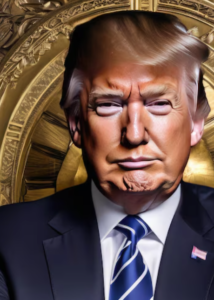$SPY $BTC $DXY
#financialsystem #geopolitics #finance #macroeconomics #globalmarkets #crypto #democracy #autocracy #technologicalcompetition #blockchain #alternativemarkets #digitalcurrency
The recent geopolitical shifts and technological advancements have underscored a growing competition between democracies and authoritarian regimes. This heightened tension has permeated not just traditional spheres of influence such as military and economic power but also financial systems. With nations like China and Russia exploring ways to establish alternatives to the current global financial architecture, the West must act swiftly to retain leadership and stability in global markets. The ongoing discussions around creating alternative financial infrastructures have been sparked by continued sanctions on authoritarian regimes, forcing countries seeking isolation from Western monetary dominance to consider new systems like digital currencies or cryptocurrency exchanges. For instance, Russia has increasingly relied on China for alternatives, while exploring central bank-backed cryptocurrencies to skirt SWIFT sanctions applied during geopolitical conflicts like the Ukraine war.
In the backdrop of these geopolitical maneuvers, the rise of blockchain technology stands out as a revolutionary disruptor, offering decentralized solutions to not just payments but the entire financial ecosystem. Corporations and policymakers from Western economies must prioritize harnessing blockchain and other emerging technologies if they want to remain relevant amid this global financial shift. $BTC and other cryptocurrencies offer a glimpse into how digital assets can be utilized to bypass centralized traditional systems. To protect their supremacy within the financial sector, U.S. and European markets need to modernize their digital frameworks. This is where international institutional investors and regulatory bodies need to move faster in anticipating and evolving how cross-border payments and decentralized finances could reshape global trade. Over time, such alternatives could potentially weaken the influence of the dollar ($DXY), consequently impacting the stock market, represented by ETF funds like $SPY, which are often closely correlated with dollar strength.
For Western democracies, maintaining a competitive edge is also about appearing more stable and more appealing to foreign investors, particularly in equities and fixed-income markets. With inflation still persisting in the U.S. and Europe, currency volatility becomes a point of concern not just for retail investors but also for institutions who are cautious about the state of fiat economies. Moreover, central banks opposing rapid rate hikes in the interest rates could cause short-term volatility in the bond markets, compelling investors to explore alternative assets like gold or digital assets, particularly Bitcoin. The rise of non-Western-based crypto platforms is another example of how important it is for Western financial markets to defend their relevance. Specific regulatory and strategic military ties with allies also nurture investor confidence, which in turn helps ensure the prosperity of the financial markets in democratic governance.
At the heart of this issue is the recognition that both autocracies and democracies are battling over more than just territory or military might—this is about lasting control over financial connectivity and capital flows worldwide. In the face of massive technological shifts and geopolitical uncertainty, adapting to the new challenges by redefining the traditional financial system will not only help shelter against immediate shocks but also create long-term stability. Hence, developing a forward-looking strategy rooted in innovation will be key for Western democracies to retain leadership. Engaging globally, improving liquidity for alternative financial systems, and implementing scalable blockchain projects will safeguard Western dominance while mitigating the risk associated with the loss of transaction powerables tied to traditional financial systems.











Comments are closed.